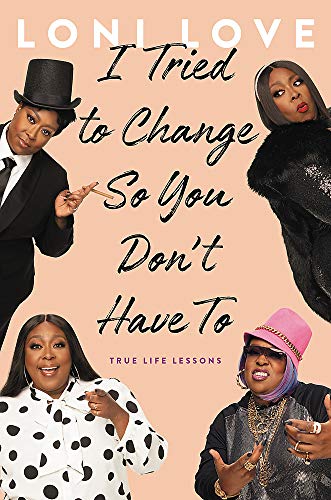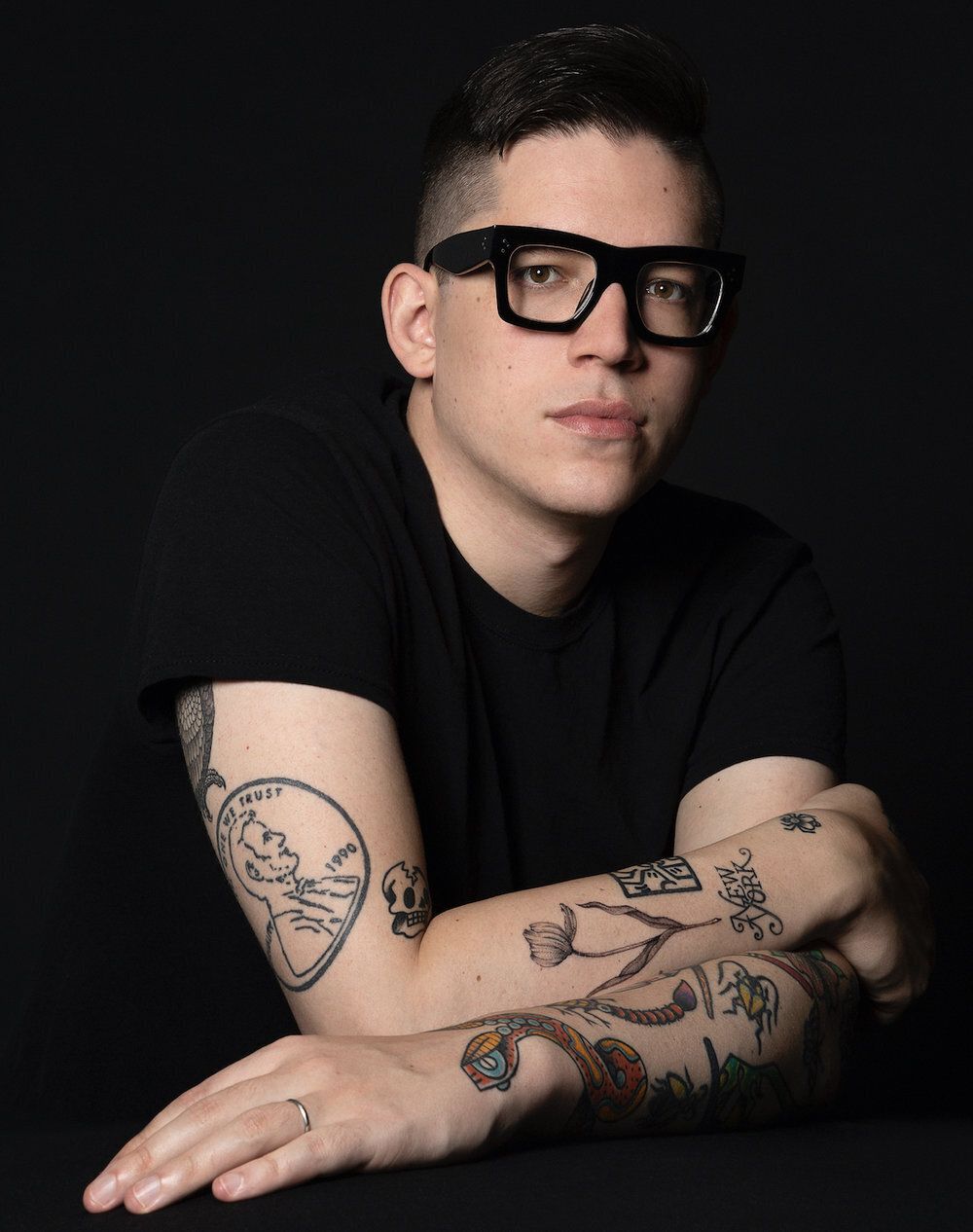Loni Love's Latest Memoir Will Help You Accept Your Flaws
Marie Claire chatted with Loni Love about the uphill battles that fill the pages of her second book, 'I Tried To Change So You Don’t Have To.'
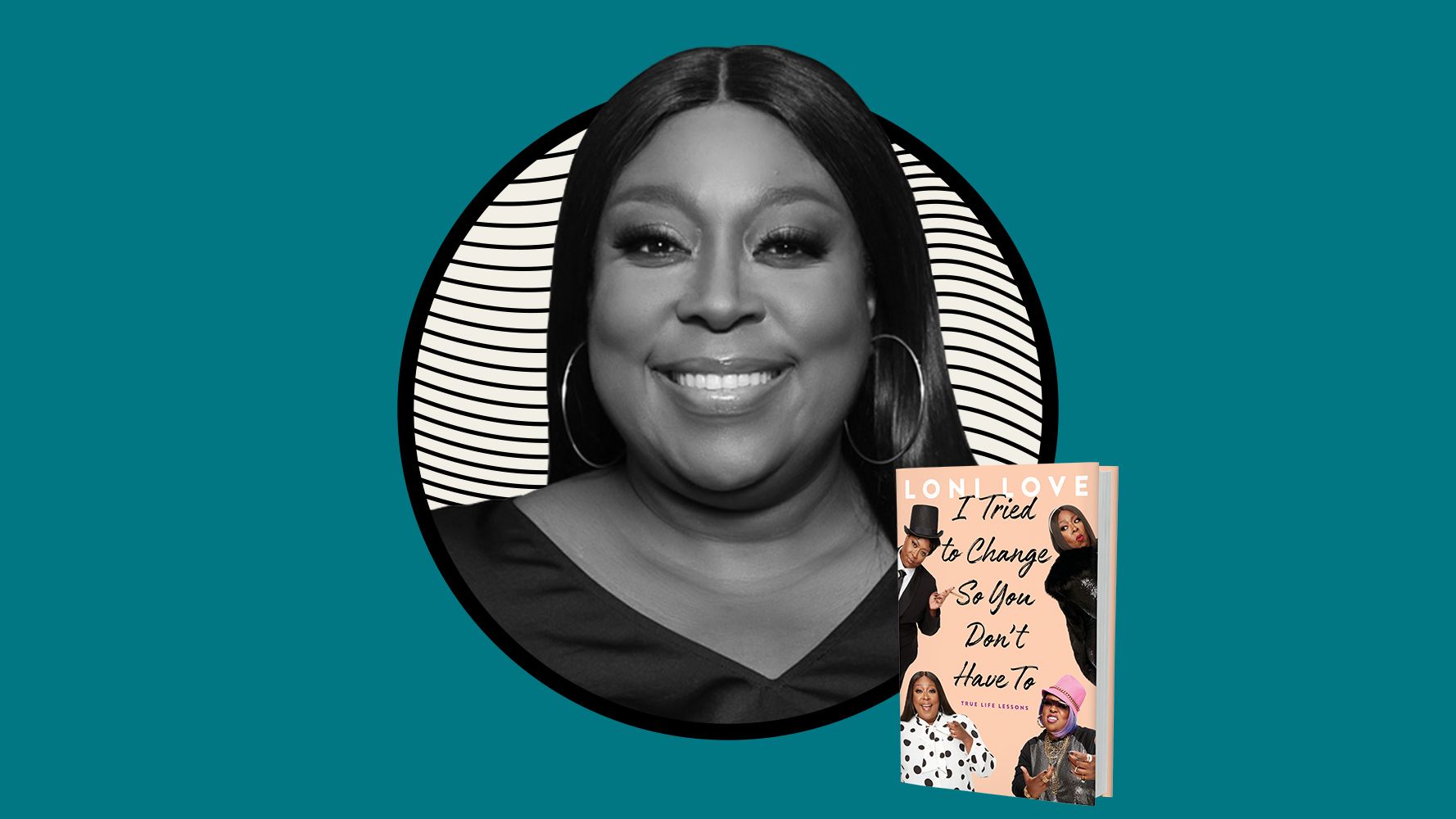
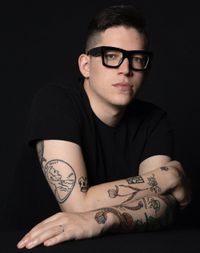
On June 18, Loni Love delivered a refreshingly honest commencement address via Zoom to her high school alma mater in Detroit, MI. In true Loni Love fashion, the actress laid out a blueprint for how to accept, embrace, and live life to the fullest—all the while cracking jokes and humble bragging about her run-in with Beyoncé. It’s no wonder the Emmy- and two-time NAACP Image Award–winning co-host of The Real was designated the class of 2020’s “part-time Auntie.”
That sensibility—wise but relatable—can be found in Love’s latest book, I Tried To Change So You Don’t Have To. In the collection of comedic essays, she writes about resisting the pressures of conformity, loving yourself for who you are, and how embracing your God-given flaws are the keys to unlocking your true potential. While her first book was focused on no-nonsense relationship advice, this time the author applies that delivery to every aspect of life.
Ahead of the release of Love’s second book, out today, Marie Claire chatted with the comedian and co-host of the number-one nationally syndicated GRACIE Award-winning radio show Café Mocha about the embarrassing mistakes, uphill battles, outlandish characters, and unexpected breakthroughs that fill its uproarious pages.
Marie Claire: What prompted your decision to write this book?
Loni Love: It was time. I’m old as hell. I need to tell people where I’ve been. Let them know that having humble beginnings doesn’t mean you can’t make something of yourself. I’ve always tried to use my platform as a way to help and encourage people; this book is really helping me reach that goal.
MC: Did any friends or family raise an eyebrow when they heard you were writing a story about your life and the people in it?
LL: You know what? I told everybody, and everyone was cool with it. But as of this interview, no one has read it. [Laughs] I’ll definitely have to do some damage control once it’s out.
MC: Have you reconnected with any of the characters from your childhood? I especially loved your description of Amber from Bible study.
LL: I haven’t. It’s been difficult with quarantine. But I have talked to my mom and she’s cool. We have a great relationship. My mother wasn’t able to give me riches or wealth, but she was able to give me this story. And that’s what this book is. It’s a wonderful feeling to have it all published and to be able to look back on my childhood and be like, There were some dark moments, but I came out okay.
MC: I love how you always choose to look at the bright side of things. One story that stands out is when your brother’s dad forgot about you on Christmas. You write so eloquently about how you knew, at the time, the feelings you were having were good because they meant you expected more out of him. You knew you deserved better. Where does that spirit come from?
LL: I think it’s because so many things have happened to me in my life. When a situation is bad, I let it play out. And when I let it play out, I can see that it happened for a reason. That’s where I developed this positive, optimistic attitude. Yeah, [my brother’s dad] was a bitch for not giving me a toy on Christmas, you know? He knew what he was doing. I was 4 or 5 years old at the time, and it really, really hurt. But in the end, his actions made me a stronger person. Even at 5 I was like, Okay I’m going to dry these tears. And because I remember that happening, I make sure that I help other children. I make sure to have a Christmas celebration if I want one. I make sure that I’m able to buy my own stuff. That Christmas actually helped me become the independent woman that I am today. So I really have to thank him for that.
Get exclusive access to fashion and beauty trends, hot-off-the-press celebrity news, and more.
MC: When I’m reading a memoir, I can usually tell that a lot of the wisdom the author is imparting on the reader was acquired through the writing process. But your passages are written as someone who has long been wise beyond her years. Was there anything you came to realize about yourself during the writing process, or was this a culmination of previously learned lessons?
LL: I think I was born 65. [Laughs] I’ve always been an old soul. Writing this book was so easy. I have a series of diaries that I started when I was, like, 10. That’s where a lot of the stories in this book come from. A lot of the things I write about are exactly how I felt back then—word for word. And a lot of that is how I still feel today. There was no stress in figuring out how I felt or why certain things happened because the attitude I had as a kid is the same attitude I have now.
This book is for women who are still trying to find themselves.
MC: You’re really good at writing about relationships and human connection—particularly the outlandish interactions you had as a child with the adults in your life. Have you always seen people for who they truly are?
LL: My upbringing in the projects was so raw. There were so many characters. There were the senior citizens, there were the drug dealers, there were the drug addicts, there were the winos, there were the school teachers, there was the Girl Scout leader. All kinds of people! And none of them were bad. None of them hurt me. I always knew that everyone was dealing with something. And because of that, they all saw me as this innocent [person]. They gave me wisdom and that wisdom helped carry me through life.
MC: Which chapter was the most fun to write?
LL: The Obama chapter. That was a really fun chapter to write because it’s such a great memory. I never thought I would actually get to go to the White House without it being a White House tour. I remember the feeling I had that day: It was very emotional. My radio show, Café Mocha Radio, which I co-host with Angelique Perrin and YoYo, is one of only 11 African American radio shows in the country. We are one of maybe two female-led African American radio shows. It was midterm elections, and President Obama wanted to meet with all 11 of us to discuss amplifying the message. I never thought I would meet the first Black President. There’s one scene I write about that I still consider the most magnificent thing I’ve ever seen: I was walking up to the White House after going through the gate, and there was a Marine who was timing my steps so he could open the door for me to go in. It was just wonderful.
MC: What would you say was the most challenging chapter to write?
LL: The most challenging chapter would probably have to be the one where I talk about my homelessness, and how I dealt with getting kicked out by mom. It’s not easy to relive it. Once you get past something like that you don’t ever want to re-process those feelings. And getting people to understand that I’m okay now, you know? And trying to write my story in a way that isn’t so painful. That part is hard. I want to teach a lesson, especially to mothers and especially to mothers with daughters: Pay attention to your daughters. Make sure to love them.
MC: The title of the book—I Tried to Change So You Don't Have To: True Life Lessons—is a direct indication of what you’re hoping the reader walks away having learned. Can you expand upon the importance of self-love and refusing to fit into a mold?
LL: We all have flaws. And if you want to work on your flaws, that’s fine. But I want people to understand that sometimes flaws are God’s way of telling you to stand out. Throughout each chapter you can see how I was trying to change something about myself that didn’t need changing. The only thing I needed to change was my attitude. That’s how I came up with the title.
I wish I had had this book when I was in high school or entering college. It would have made me think a little bit differently about life. It helps to understand that things will be fine if you’re not friends with the group of girls who don’t want you around or when a guy doesn’t want to be with you because you’re not his type. This book is for women who are still trying to find themselves.
MC: At the end of every chapter, you include little lists of lessons you’ve learned. What’s the inspiration behind those?
LL: I just wanted to give a little one-two punch. I do that. I did it in my first book (Love Him Or Leave Him, But Don't Get Stuck with the Tab) and I wanted to do it again in the second book. Just something to make the reader laugh out loud. I want to bring a little levity to the end of every chapter because some of them are really heavy. As a comedian I always want to show my sense of humor—even in the darkest of times.
For more stories like this, including celebrity news, beauty and fashion advice, savvy political commentary, and fascinating features, sign up for the Marie Claire newsletter.
RELATED STORIES
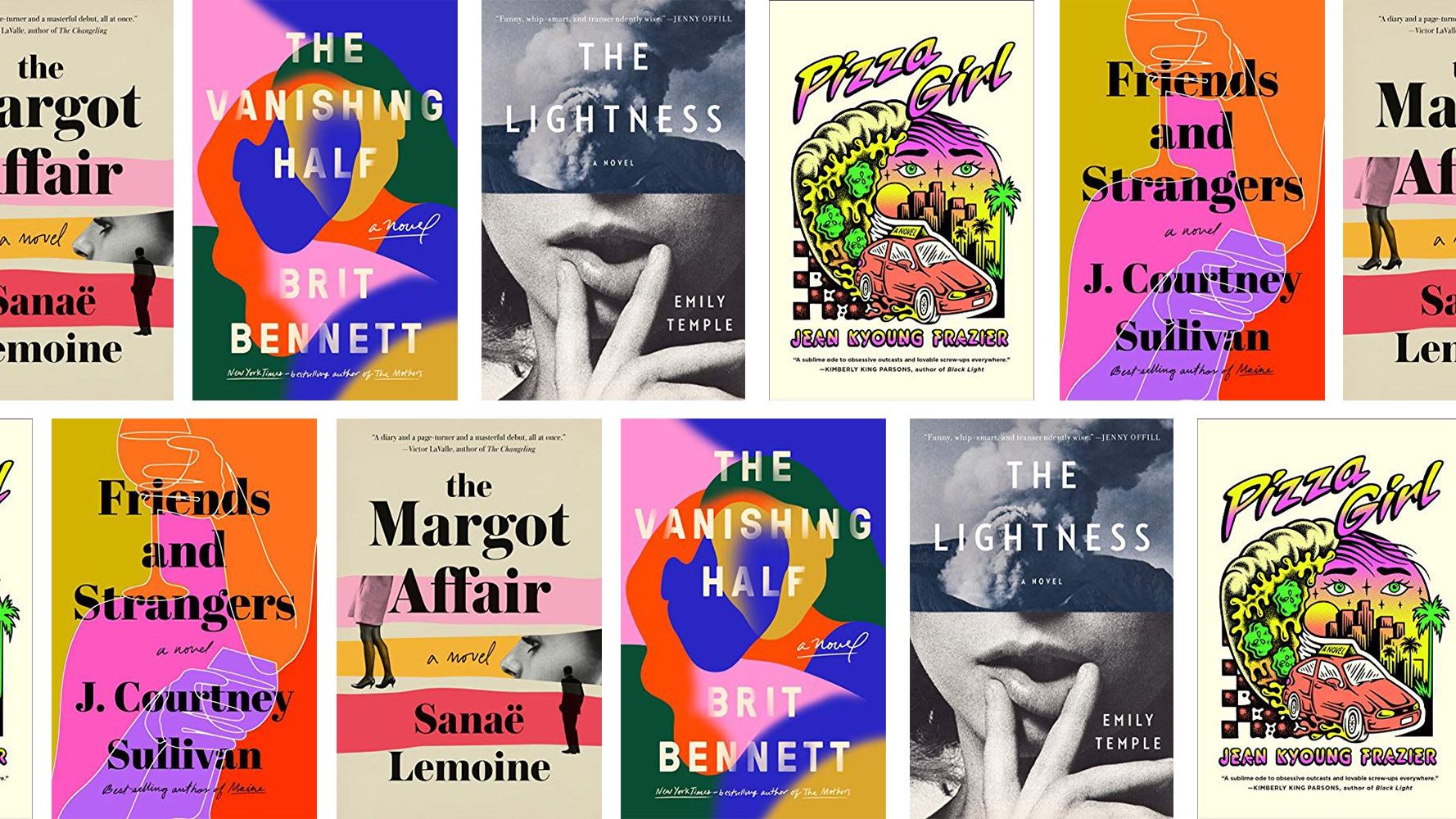
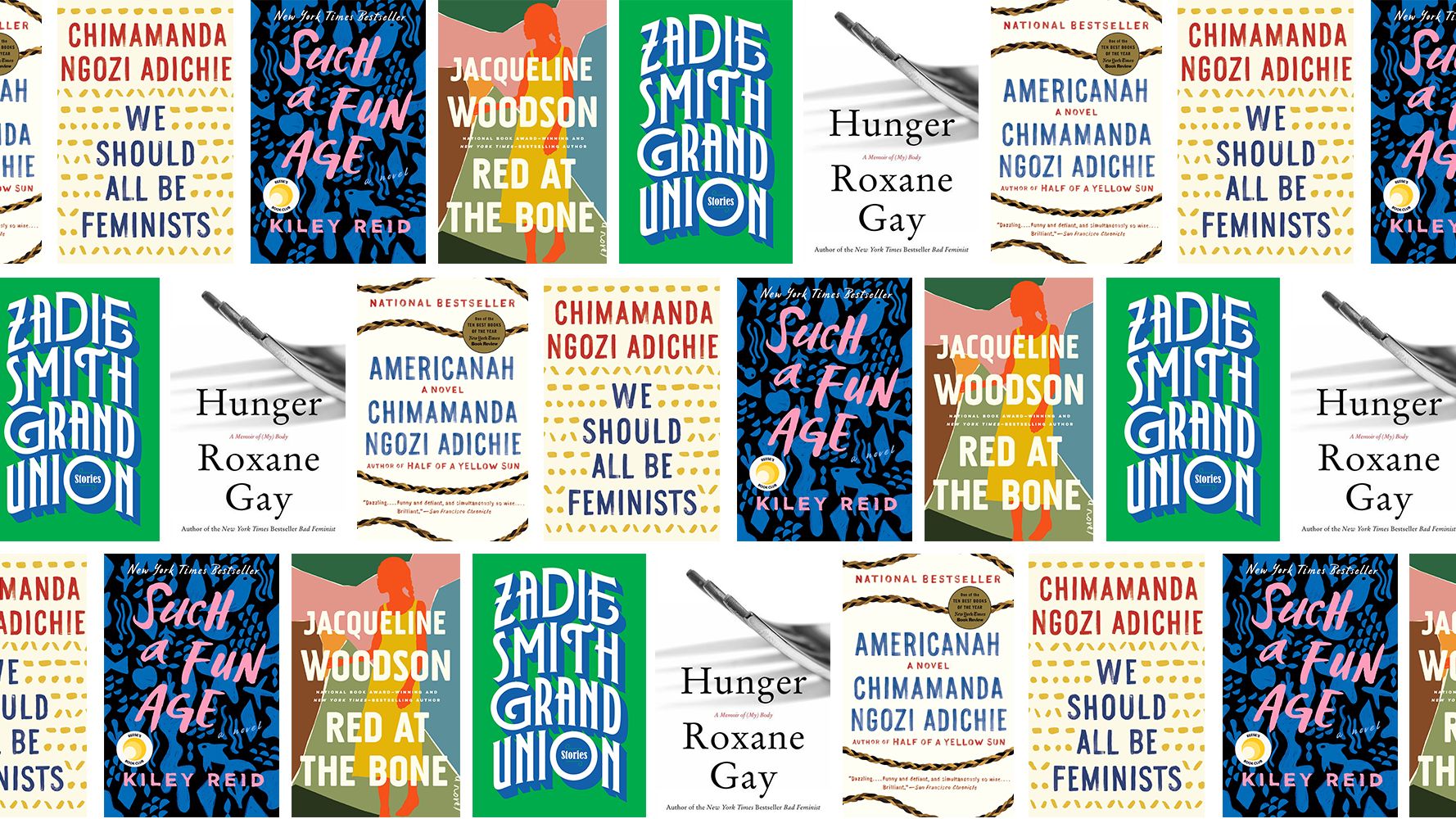
Maxwell Losgar is the Entertainment Director at Cosmopolitan. He books the covers and inside features with all of your favorite stars. He's probably watching Netflix right now. Like, as his job. For research.
